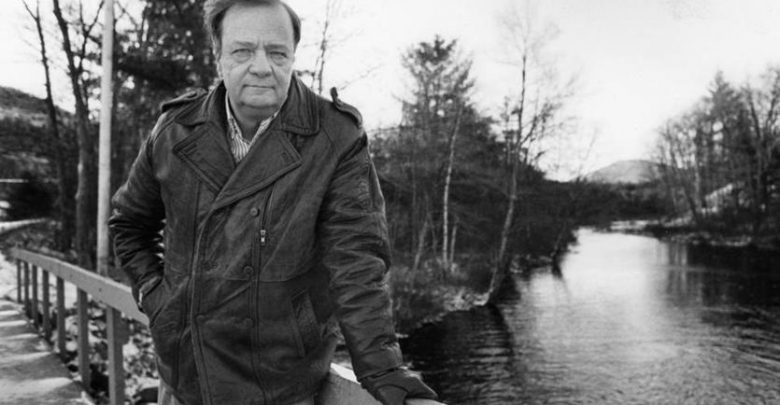Dear Friends of the Pub Quiz,
My son Truman was born on the same date as a primary subject of my doctoral dissertation, T.S. Eliot. I used to recite Eliot poems to Truman when he was a baby, distracting him with the unusual combinations of words and sounds. Registering Truman’s delight, I recalled something that Eliot wrote in a long essay about the poet Dante: “What is surprising about the poetry of Dante is that it is, in one sense, extremely easy to read. It is a test (a positive test, I do not assert that it is always valid negatively), that genuine poetry can communicate before it is understood.” By this Eliot means that the power of mellifluous rhyming poetry can work its magic on the listener even before the words are understood. One of my Eliot professors in college, William Arrowsmith, an important classics scholar who had been called “arguably the most gifted poetic translator of his generation,” accompanied Eliot to Italy when Eliot presented that Dante appreciation essay, titled “What Dante Means to Me.”Arrowsmith noted the kerfuffle that resulted when the collection of Dante scholars expected Eliot to present his address in Italian, but the Anglican poet spoke in English. Scandal!
Arrowsmith was on hand for a centennial celebration of the life and work of T.S. Eliot that took place at Harvard Theatre at Harvard University, a building where Eliot himself doubtlessly spent some time when he was a Harvard undergraduate from 1906-1909. Also on hand were a number of authors who admired Eliot, such as UC Poet Laureate Robert Pinsky, Nobel Laureates Seamus Heaney and Derek Walcott, and poets and even actors who knew Eliot. For some reason, the musician James Taylor also performed a song. When I attended this even in 1988, I knew that I would never forget the names of all the assembled literati and glitterati, many of whose names I have since forgotten.
Most of all I remember my conversation with Donald Hall, a poet and anthologist whose curatorial work shaped my understanding of 20thcentury poetry, and whose works I had studied in my classes. Hall told the story of going with another undergraduate to interview Eliot in 1951, just before heading to Oxford.
Christopher Hitchens picked up this story in The Atlantic in 2005:
Then Eliot appeared to search for the right phrase with which to send me off. He looked me in the eyes, and set off into a slow, meandering sentence. “Let me see,” said T. S. Eliot, “forty years ago I went from Harvard to Oxford. Now you are going from Harvard to Oxford. What advice can I give you?” He paused delicately, shrewdly, while I waited with greed for the words which I would repeat for the rest of my life, the advice from elder to younger, setting me off on the road of emulation. When he had ticked off the comedian’s exact milliseconds of pause, he said, “Have you any long underwear?”
Hall earned the biggest laugh of the evening that night, but I was more impressed with how kind and patient he was with me, a poetry fan and undergraduate who didn’t know quite what to say when meeting an idol. He made conversations and made jokes, wishing that he was young enough to cavort on stage with the actors. Donald Hall seemed old to me then, and in recent interviews he has seemed ancient, having endured so much, and having shaped a generation’s understanding of poetry as a public man of letters, and as the winner of the National Book Critics Circle prize, and the National Medal of Arts. Hall died yesterday at age 89, but his acts of kindness and his poetry will live on in those who remember and read him, as I encourage you to do.
Tonight’s Pub Quiz will feature questions about the ephemeral nature of life and newspapers, as well as domestic birds, monks, the moon, lords and Lords, Pence’s challenges, Virginia disappointments, doves, appreciated portraits, fibers, strength against chaos, people caught on tape, The World Cup, wind whipping through valleys, fake dads, fine songs, immortal players, charcoalification, understanding the universe, electric countries, network TV, musical mathematics, stores for elites, really cute animals, Henry David Thoreau, controversial times that prompt leaders to step forward, serifs, military fashion, popular hotspots, tariffs, and Shakespeare.
See you tonight!
Your Quizmaster
https://www.yourquizmaster.com
http://www.twitter.com/yourquizmaster
http://www.facebook.com/yourquizmaster
Here are three questions from last week’s quiz:
- Science. The aardvark is native to what continent?
- Books and Authors. Norton Juster’s most famous book is titled The Phantom WHAT?
- Current Events – Names in the News. We learned today that Kim Jong Un is more popular than what prominent Democrat among the GOP?
P.S. Please go find and read a Donald Hall poem today.




